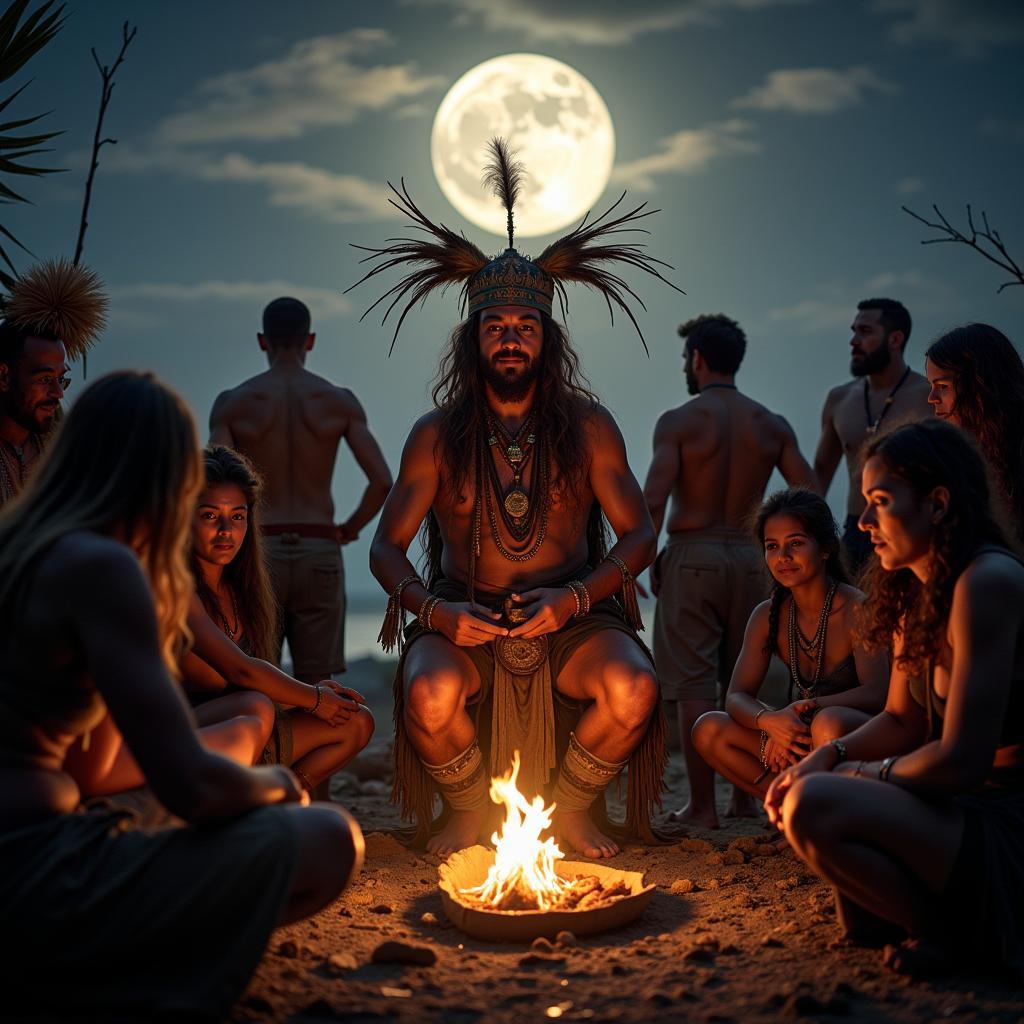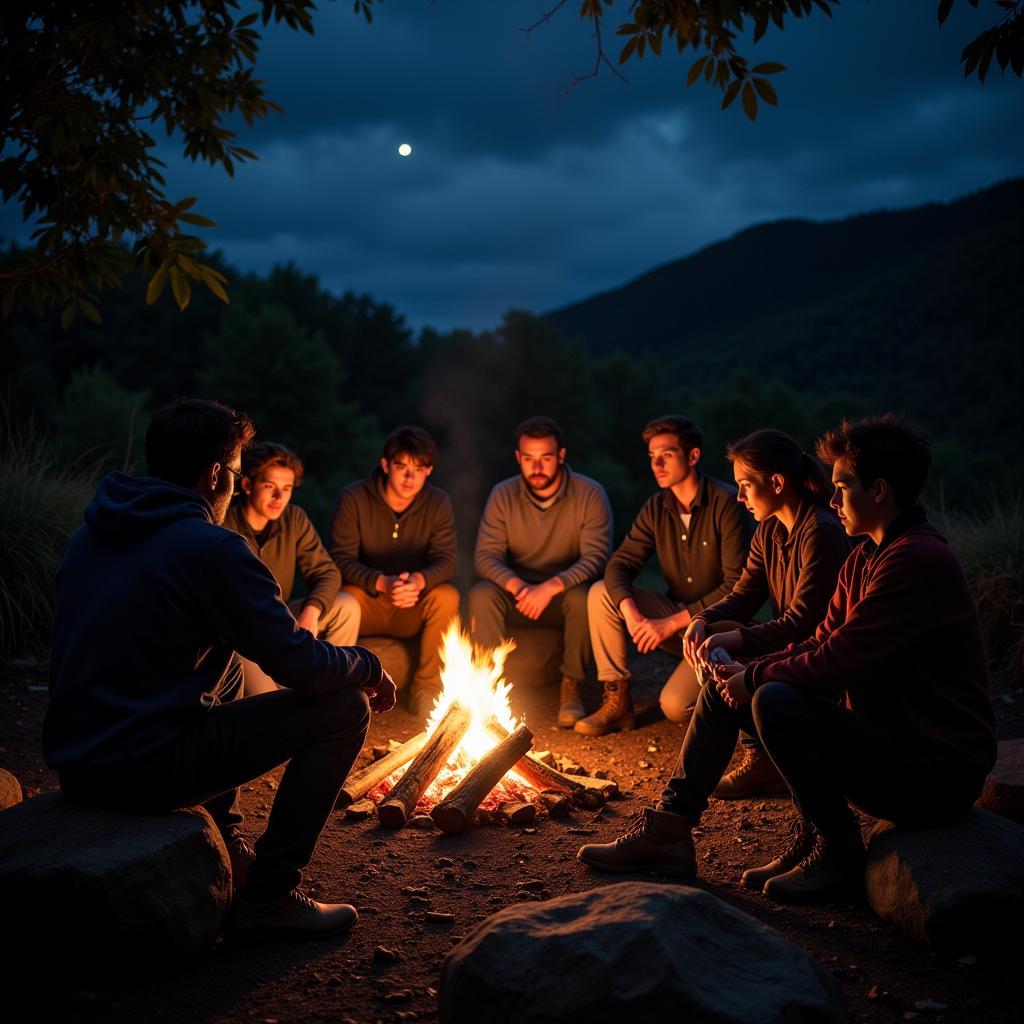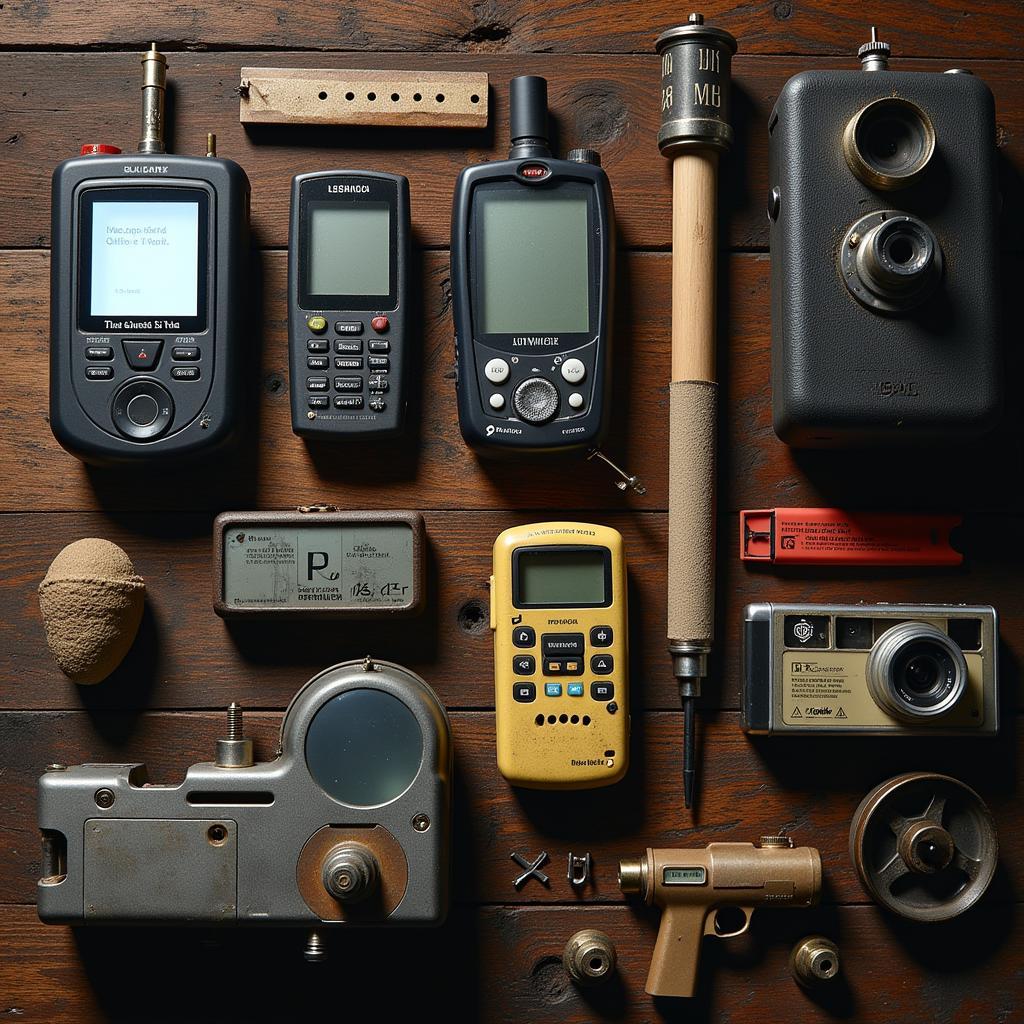The study of the paranormal, often shrouded in mystery and skepticism, can benefit greatly from the rigorous and insightful approaches found in Anthropological Methods Of Research. By applying these methods, we can move beyond mere speculation and delve into the heart of unexplained phenomena, seeking evidence and understanding within their cultural contexts.
Ethnography and the Paranormal: Understanding Belief Systems
One of the key strengths of anthropology lies in its ethnographic approach. Cultural anthropologists immerse themselves in the communities and cultures they study, observing, participating, and documenting beliefs and practices related to the paranormal. This first-hand experience allows researchers to:
- Identify patterns and variations in paranormal beliefs across different societies.
- Analyze how these beliefs are integrated into daily life, rituals, and social structures.
- Understand the cultural meanings and functions attributed to paranormal experiences.
 Shaman performing a ritual
Shaman performing a ritual
For example, by living among a community that believes in spirit possession, an anthropologist can gain invaluable insights into the rituals, social roles, and personal experiences associated with this phenomenon. This nuanced understanding goes far beyond simply labeling the belief as “supernatural” and instead provides a framework for comprehending its significance within a specific cultural context.
Unpacking Narratives: Oral Histories and Paranormal Phenomena
The stories people tell about their experiences with the paranormal offer a rich source of data for anthropological investigation. By collecting and analyzing these narratives, researchers can:
- Uncover common themes, motifs, and symbols that recur in paranormal accounts.
- Examine how these stories are shaped by cultural expectations, individual psychology, and social dynamics.
- Explore the role of storytelling in transmitting, reinforcing, or challenging paranormal beliefs.
 Group of people sharing stories around a campfire
Group of people sharing stories around a campfire
Consider the enduring tales of haunted houses. Anthropological research can help us understand why certain locations become associated with haunting, how these stories are passed down through generations, and the impact these narratives have on the people who live in or visit these places.
Ethnographic Methods and the Paranormal: A Multifaceted Approach
Beyond ethnography, anthropologists employ a range of qualitative and quantitative methods to study the paranormal, including:
- Interviews: Conducting in-depth interviews with individuals who have experienced or witnessed paranormal activity can provide valuable personal perspectives and insights.
- Surveys: Distributing surveys to larger populations can help researchers gather statistical data on the prevalence and characteristics of paranormal beliefs and experiences.
- Archival Research: Examining historical records, documents, and folklore can shed light on the evolution of paranormal beliefs and practices over time.
- Visual Anthropology: Analyzing photographs, videos, and other visual media purportedly capturing paranormal phenomena can offer another layer of data for investigation.
 Assortment of tools used in paranormal investigations
Assortment of tools used in paranormal investigations
By weaving together these diverse strands of inquiry, anthropologists can construct a more comprehensive and nuanced understanding of the paranormal, moving beyond simple belief or disbelief to uncover the complex interplay of culture, psychology, and human experience.
Conclusion: Embracing a Critical and Open-Minded Approach
Anthropological methods of research provide valuable tools for investigating the paranormal. By approaching this field with cultural sensitivity, rigorous methodologies, and a commitment to understanding the human experience in all its complexity, we can shed light on the mysteries that have captivated us for centuries. If you’re fascinated by the unexplained and seek answers grounded in evidence and understanding, embracing anthropological perspectives can enrich your exploration of the paranormal.
Frequently Asked Questions (FAQs)
1. Can anthropological research prove or disprove the existence of the paranormal?
Anthropology focuses on understanding human beliefs and experiences, not proving or disproving the existence of specific phenomena.
2. How do anthropologists address skepticism when studying the paranormal?
Anthropologists approach their research with a critical but open mind, acknowledging skepticism while also respecting the experiences and beliefs of the communities they study.
3. What are some ethical considerations when conducting anthropological research on the paranormal?
Researchers must obtain informed consent, protect the privacy of their participants, and be sensitive to the potential cultural sensitivities surrounding paranormal beliefs.
For further exploration of anthropological research methods and their application to the study of the paranormal, delve into our resources on anthropological research methods, cultural anthropologists do research by, and ethical issues in qualitative research. We also encourage you to explore the fascinating intersection of anthropology of consumerism and product research methodology for a deeper understanding of cultural influences on beliefs and practices.
If you have questions or need assistance with your own Paranormal Research endeavors, our team of experts is here to help. Contact us 24/7 at Phone Number: 0904826292, Email: research@gmail.com. You can also visit us at No. 31, Alley 142/7, P. Phú Viên, Bồ Đề, Long Biên, Hà Nội, Việt Nam. Let’s explore the mysteries together.